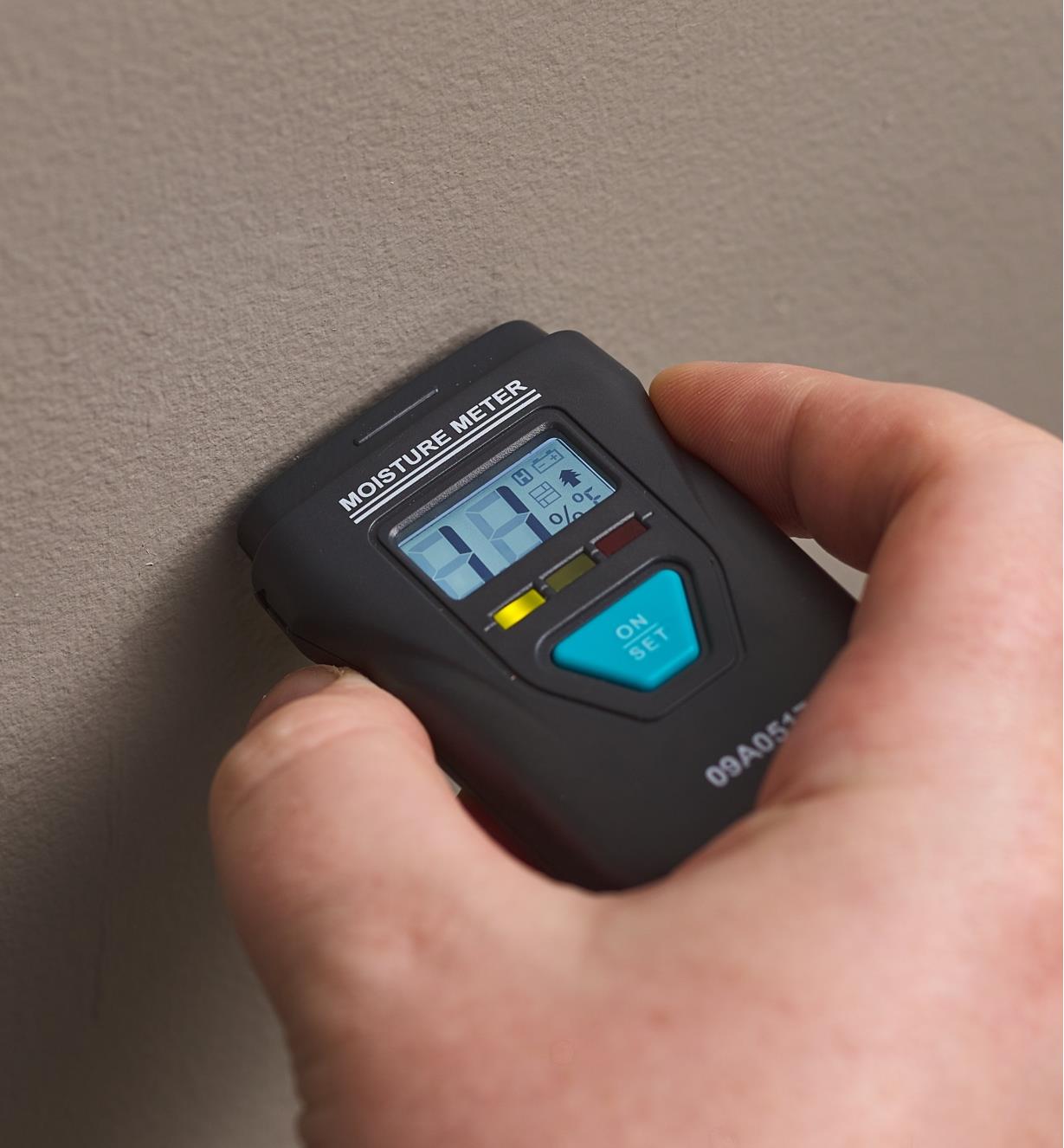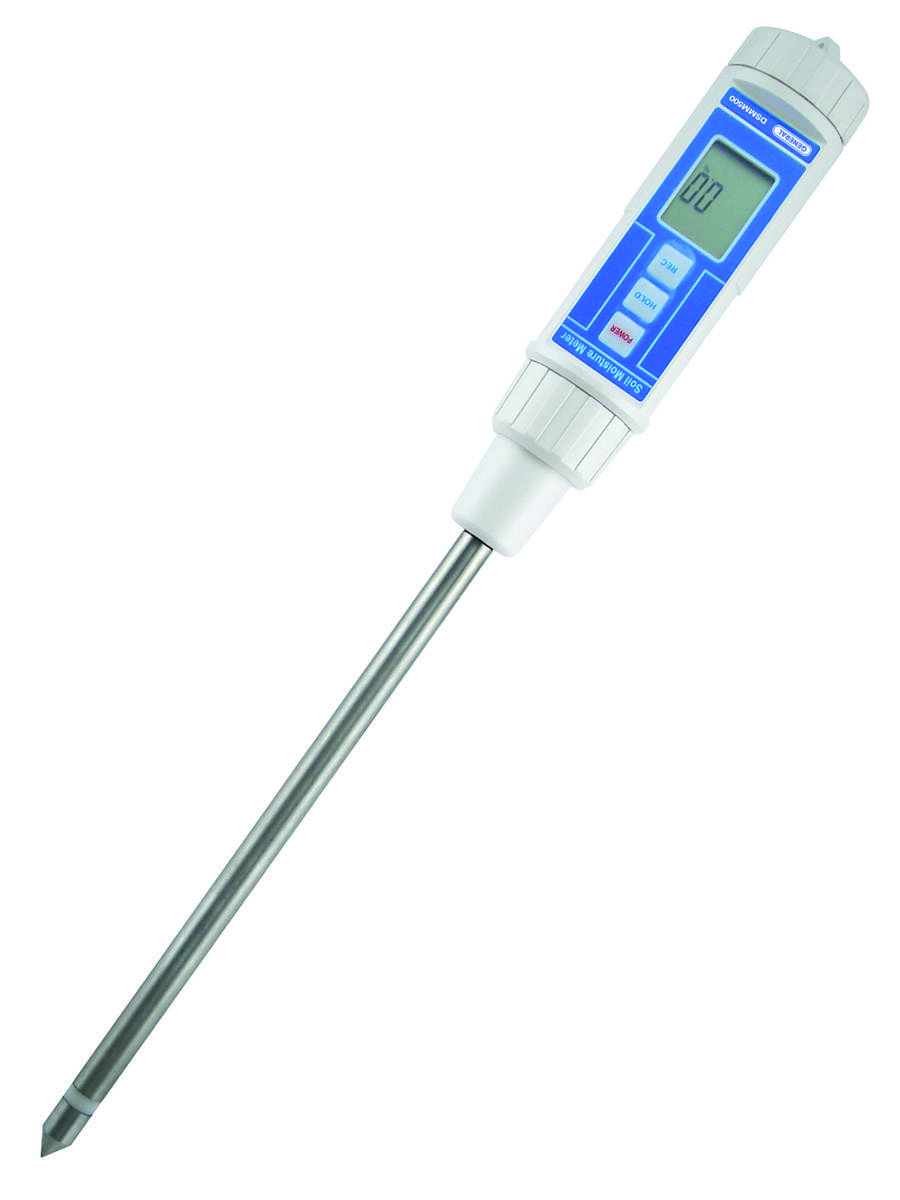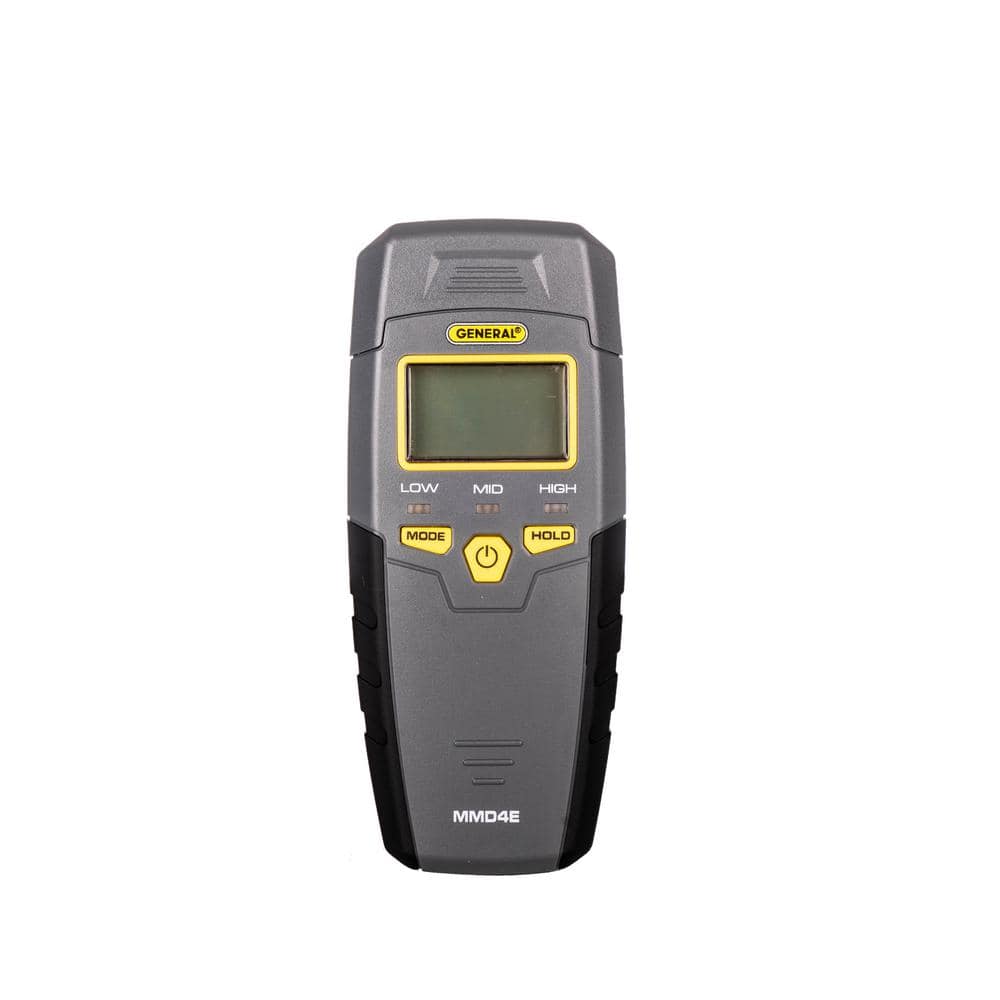Comprehending the Various Types of Moisture Meters and Their Applications
Comprehending the Various Types of Moisture Meters and Their Applications
Blog Article
The Ultimate Overview to Moisture Meters: A Comprehensive Review and Exactly How They Can Conserve You Cash
In the world of building maintenance, building and construction, and various markets, the significance of precisely determining moisture levels can not be overstated. Moisture meters work as crucial devices in discovering and checking moisture web content in materials, aiding in preventing expensive damages and making sure the top quality of products. Understanding the nuances of different sorts of moisture meters, their applications, and the potential cost-saving advantages they supply can be a game-changer for companies and experts alike. Finding how these devices can not just enhance processes yet also contribute to monetary cost savings is a trip worth starting.
Sorts Of Moisture Meters
One typical kind is the pin-type moisture meter, which gauges the electrical resistance between 2 pins placed into a material. Pinless moisture meters, on the other hand, usage electro-magnetic sensor plates to scan a bigger area without causing damage to the product's surface area.
Moreover, there are also specialty dampness meters designed for details materials like grain, hay, or soil. These meters supply accurate dampness analyses customized to the special properties of the product being tested. Infrared wetness meters gauge the thermal properties of a product to determine its dampness web content non-invasively, making them beneficial for applications where pin or pinless meters might not be ideal. Comprehending the different types of moisture meters available can assist markets pick one of the most suitable tool for their particular dampness measurement demands.

Benefits of Utilizing Moisture Meters

Furthermore, using dampness meters can lead to boosted energy effectiveness. By identifying locations with high wetness degrees, such as leakages or bad insulation, modifications can be made to improve power preservation and minimize utility expenses. In agricultural settings, dampness meters play a vital function in enhancing plant returns by allowing farmers to check dirt wetness degrees and make informed watering decisions. Generally, the benefits of making use of dampness meters extend across numerous markets, giving economical services and advertising better top quality control techniques.
How to Choose the Right Moisture Meter
Choosing the ideal moisture meter entails considering vital aspects such as material compatibility, measurement range, and calibration accuracy. When selecting a wetness meter, it's vital to guarantee that the meter appropriates for the particular product you will certainly be screening. Different products have differing electric buildings that can affect dampness readings, so picking a meter made for your product is important for accurate results. In addition, take into consideration the measurement array of the dampness meter. Ensure that the meter can discover dampness degrees within the range needed for your applications. Calibration precision is an additional essential variable to remember (Moisture Meter). Select a dampness meter with trusted calibration to guarantee constant and exact readings. Some meters might require periodic calibration changes, so comprehending about his the calibration procedure is crucial. By carefully examining these variables, you can pick a moisture meter that meets your requirements and provides accurate wetness dimensions for your projects.
Proper Strategies for Moisture Meter Usage
To ensure precise moisture readings and maximize the effectiveness of a dampness meter, employing appropriate strategies is crucial. When making use of a pin-type moisture meter, put the pins or probes right into the product being examined until they make full call. Ensure the pins are perpendicular to the surface to obtain one of the most accurate analysis. For pinless wetness meters, hold the tool level versus the material and move it gradually to cover the whole location for a typical reading. It's vital to adjust the dampness meter according to the Website material being examined to enhance accuracy. Take multiple analyses across the surface area and typical them out for a more reliable result. Furthermore, make sure that the product being evaluated is adapted to the atmosphere to stop skewed readings. Routine maintenance of the moisture meter, such as cleaning the pins or sensor, is likewise vital to make sure accurate and regular analyses. By complying with these correct methods, individuals can count on their wetness meter to supply credible wetness degrees, aiding in avoiding expensive damages or guaranteeing high quality in numerous applications.

Expense Cost Savings With Moisture Meter Applications
Just how can the tactical application of dampness meters cause significant expense savings throughout different markets? Moisture meters play an important role in expense financial savings by avoiding prospective damages and making sure quality assurance in various markets. In the agriculture industry, moisture meters aid in identifying the ideal time for collecting crops, protecting against excess or over-drying wetness that can affect the end product's top quality. This accurate monitoring assists farmers avoid unnecessary losses visit homepage and optimize their yield.

Moreover, in the food handling sector, dampness meters are necessary for keeping an eye on item top quality and ensuring compliance with safety guidelines. By properly gauging dampness content in food, manufacturers can prevent perishing, preserve freshness, and decrease waste, causing significant price financial savings. Generally, the tactical application of wetness meters is an important financial investment that can result in significant price decreases and improved efficiency across numerous markets.
Conclusion
Finally, moisture meters are useful tools for identifying and determining wetness levels in various materials. By using the appropriate wetness meter and following correct techniques, individuals can effectively protect against expensive problems triggered by excess dampness. Buying a top quality dampness meter can cause significant price savings in the lengthy run by determining possible issues beforehand and enabling punctual removal. Inevitably, moisture meters are important instruments for preserving the stability and durability of frameworks and materials.
Wetness meters offer as vital tools in finding and keeping an eye on moisture web content in materials, aiding in stopping expensive problems and making sure the top quality of items. Infrared wetness meters determine the thermal residential or commercial properties of a product to establish its wetness content non-invasively, making them valuable for applications where pin or pinless meters may not be suitable.Wetness meters offer very useful advantages in properly assessing and checking moisture degrees in diverse materials and atmospheres. In agricultural settings, moisture meters play an important function in enhancing crop returns by making it possible for farmers to monitor soil dampness levels and make educated irrigation choices.In verdict, dampness meters are useful devices for measuring and discovering dampness degrees in numerous materials.
Report this page